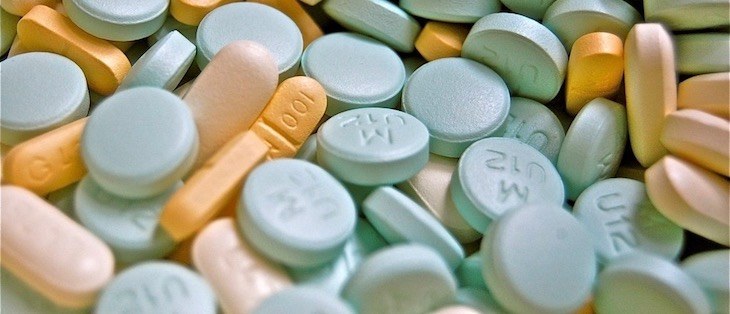Arkansas to receive $216 million of $26 billion settlement reached in opioid crisis
by July 25, 2021 10:55 am 2,223 views

Arkansas Attorney General Leslie Rutledge announced Friday (July 23) a $26 billion agreement with pharmaceutical manufacturers and distributors of opioids.
The agreement includes Cardinal, McKesson, and AmerisourceBergen – the nation’s three major pharmaceutical distributors – and Johnson & Johnson, which manufactures and markets opioids. The settlement requires significant industry changes that will help prevent an opioid crisis from happening again, she said. The agreement would resolve investigations and litigation over the companies’ roles in creating and fueling the opioid epidemic.
Drug overdoses, fueled by opioids, has been the second leading cause of accidental deaths in Arkansas in the last decade. In the last three years, opioid deaths have been declining, but they are still high on a per capita basis.
“This settlement is a bittersweet moment that has taken years to negotiate, and will provide resources we desperately need in Arkansas to combat the devastating opioid epidemic,” said Rutledge. “Far too many Arkansans have felt the impact of the opioid epidemic and while this agreement will not get loved ones back, it will help save lives through education and treatment of those battling addiction.”
The agreement would resolve the claims of both state and local governments across the country, including the nearly 4,000 that have filed lawsuits in federal and state courts. Following the agreement, states have 30 days to sign on to the settlement and local governments in the participating states will have up to 150 days to join to secure a critical mass of participating states and local governments. States and their local governments will receive maximum payments if each state and its local governments join together in support of the agreement.
Arkansas anticipates signing the agreement after reviewing the final settlement documents making Arkansas local governments eligible to participate. Arkansas’ share will be distributed among the state and local governments following the memorandum of agreement to which the state, cities, and counties have already agreed. Arkansas stands to receive approximately $216 million with all local governments on board.
Funding Overview
- The three distributors collectively will pay up to $21 billion over 18 years.
- Johnson & Johnson will pay up to $5 billion over nine years with up to $3.7 billion paid during the first three years.
- The total funding distributed will be determined by the overall degree of participation by both litigating and non-litigating states and local governments.
- The substantial majority of the money is to be spent on opioid treatment and prevention.
- Each state’s share of the funding has been determined by agreement among the states using a formula that takes into account the impact of the crisis on the state – the number of overdose deaths, the number of residents with substance use disorder, and the number of opioids prescribed – and the population of the state.
Injunctive Relief Overview
The 10-year agreement will result in court orders requiring Cardinal, McKesson, and AmerisourceBergen to:
- Establish a centralized independent clearinghouse to provide all three distributors and state regulators with aggregated data and analytics about where drugs are going and how often, eliminating blind spots in the current systems used by distributors.
- Use data-driven systems to detect suspicious opioid orders from customer pharmacies.
- Terminate customer pharmacies’ ability to receive shipments, and report those companies to state regulators, when they show certain signs of diversion.
- Prohibit shipping of and report suspicious opioid orders.
- Prohibit sales staff from influencing decisions related to identifying suspicious opioid orders.
- Require senior corporate officials to engage in regular oversight of anti-diversion efforts.
The 10-year agreement will result in court orders requiring Johnson & Johnson to:
- Stop selling opioids.
- Not fund or provide grants to third parties for promoting opioids.
- Not lobby on activities related to opioids.
- Share clinical trial data under the Yale University Open Data Access Project.
This settlement comes as a result of investigations by state attorneys general into whether the three distributors fulfilled their legal duty to refuse to ship opioids to pharmacies that submitted suspicious drug orders and whether Johnson & Johnson misled patients and doctors about the addictive nature of opioid drugs.
